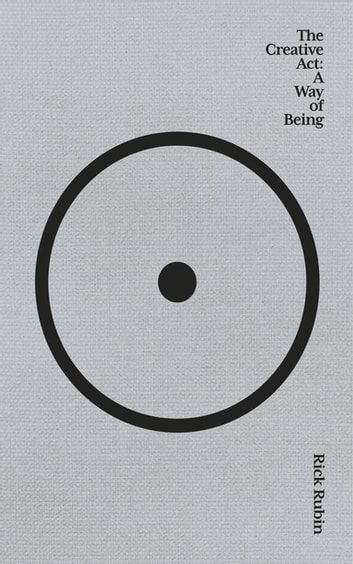
The Creative Act A Way of Being
Many famed music producers are known for a particular sound that has its day and then ages out. Rick Rubin is known for something else: creating a space where artists of all different genres and traditions can home in on who they really are and what they really offer. He has made a practice of helping people transcend their self-imposed expectations in order to reconnect with a state of innocence from which the surprising becomes inevitable. Over the years, as he has thought deeply about where creativity comes from and where it doesn’t, he has learned that being an artist isn’t about your specific output; it’s about your relationship to the world. Creativity has a place in everyone’s life, and everyone can make that place larger. In fact, there are few more important responsibilities. The Creative Act is a beautiful and generous course of study that illuminates the path of the artist as a road we all can follow. It distils the wisdom gleaned from a lifetime’s work into a luminous reading experience that puts the power to create moments – and lifetimes – of exhilaration and transcendence within closer reach for all of us.
Reviews
abhi @shxlat
Viet-Hung Nguyen@viethung
Cenedra@learningbycandlelight
Nina Alexandra Bacrau@nina05
erin alise @thehollowvalley
Kevin Wammer@cliophate
Serge L@comerades
Sebastien Bailouni@seba
Julian Paul@julianpaul
Vera Heilig@veraheilig
Anna Bostick@aebostick
Mireia@mireiaallende
Roisin O'Flaherty @roisinof
Krystal@demonhour
Daniel Gynn@danielgynn
Sebastian Stockmarr@stockmarr
Ali Angco@aliangco
Shad Gibran@shad
Keven Wang@kevenwang
Justin Schueler@justinschueler
Linus Stieldorf@lks
Marisa Ringgold@marzbooks123
g.m.@genie_m
Hakan Erbas@hacomeister
Highlights
lelayna@wigglewip
Page 333
Grace McCarter@gracemccarter
Grace McCarter@gracemccarter
Grace McCarter@gracemccarter
Page 275
Sachi@sachi
Grace McCarter@gracemccarter
Amanda Rios@arios92
Page 111
Amanda Rios@arios92
Page 108
Amanda Rios@arios92
Page 102
Amanda Rios@arios92
Page 99
Amanda Rios@arios92
Page 98
Amanda Rios@arios92
Page 94
Amanda Rios@arios92
Page 89
Amanda Rios@arios92
Page 86
Amanda Rios@arios92
Page 86
Amanda Rios@arios92
Page 80
Amanda Rios@arios92
Page 79
Amanda Rios@arios92
Page 79
Amanda Rios@arios92
Page 79
Amanda Rios@arios92
Page 78
Amanda Rios@arios92
Page 77
Amanda Rios@arios92
Page 71
Amanda Rios@arios92
Page 60
Amanda Rios@arios92
Page 57